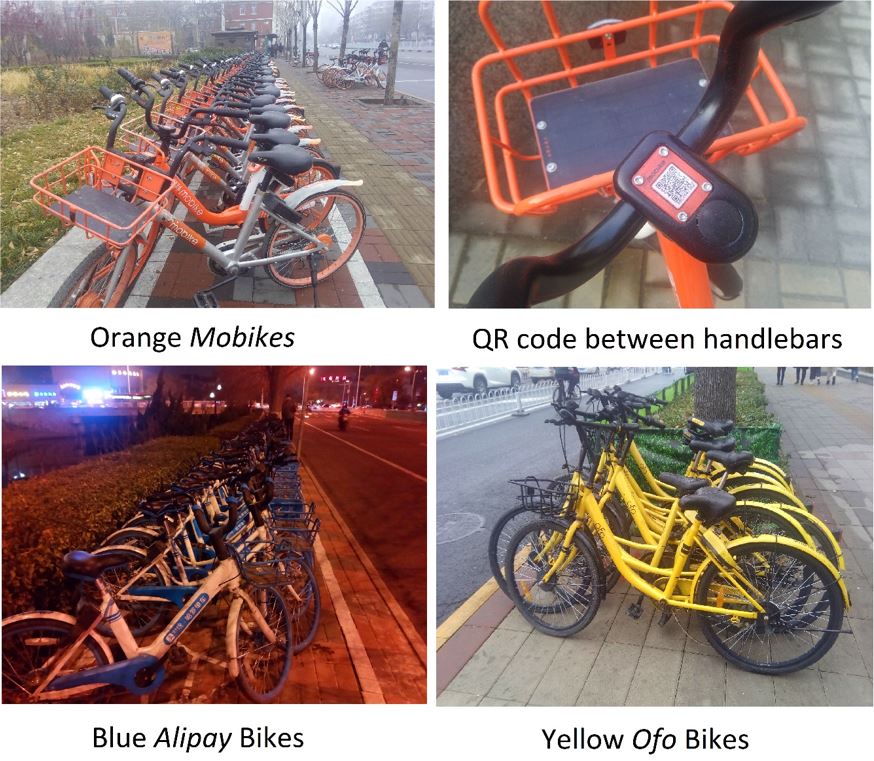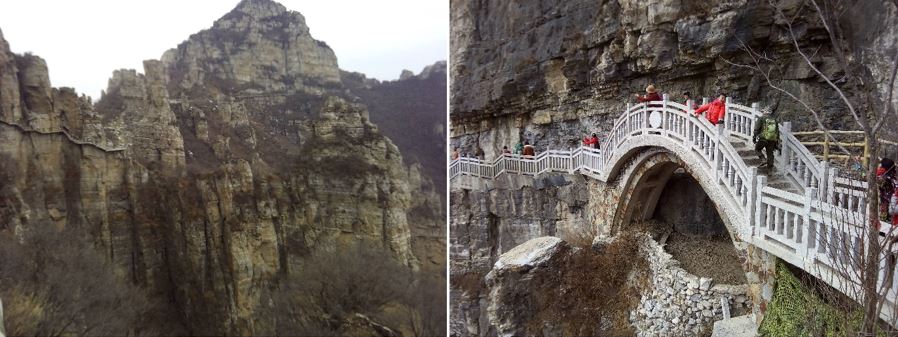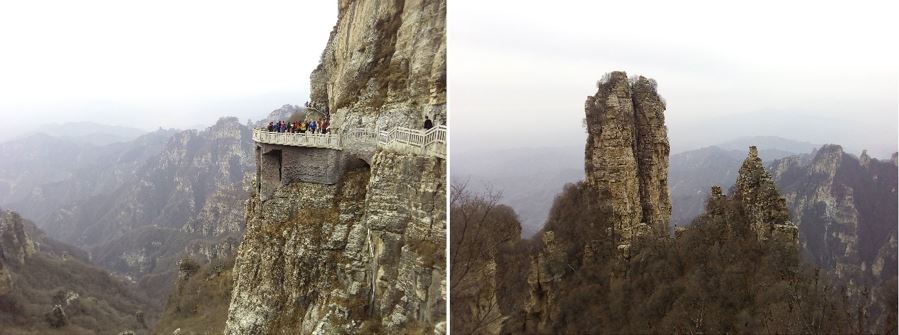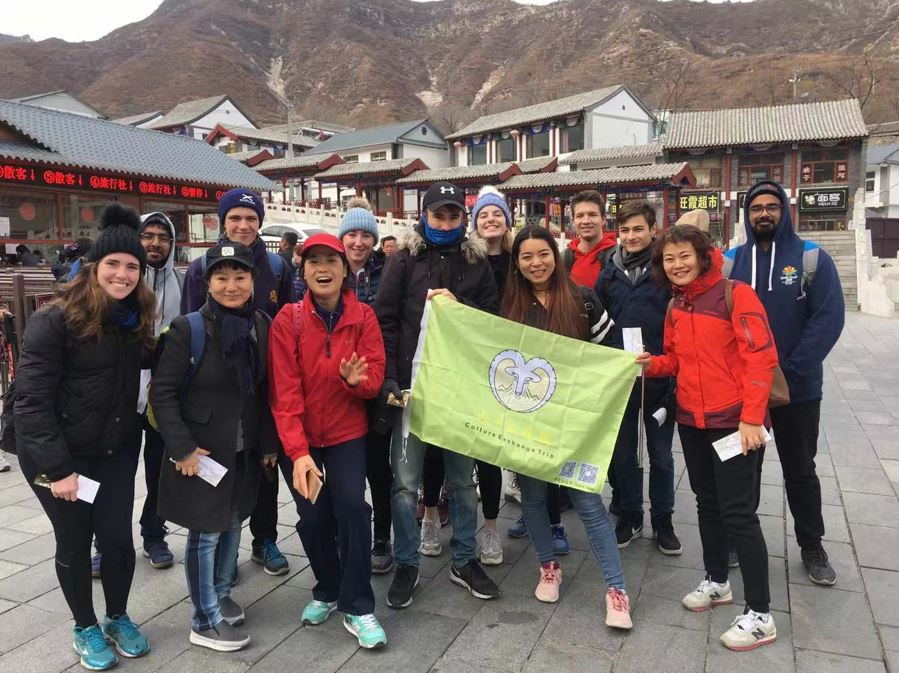The Life of a Wài Guó Rén (Part 1)
It’s now been a whole season since I left my house by the shores of Loch Duich and entered the fast-moving world of modern China. Living as a wài guó rén (Chinese word for foreigner, literally “outside country person”) has been the strangest and most enriching experience of my life, watching as a completely alien environment slowly and gradually becomes my home. Events otherwise out of the ordinary – such as being taken out for dinner in an acrylic factory, being given acupuncture in a traditional Chinese medicine shop, teaching a class of Chinese primary school kids how to speak Gaelic and ceilidh dance, or reciting ancient Chinese poetry in front of 200 people – have simply become part of ordinary life.

Novembre a commencé par un weekend-voyage à la ville de Shijiazhuang avec des amis de mon église. De plus, ce voyage était ma première expérience de la grande vitesse ferroviaire en Chine. Couvrant une longueur totale de 27.000 kilomètres, la Chine a un résau de trains à grande vitesse plus grand que tous les autres pays. Ces trains “ultrarapides” peuvent atteindre une vitesse de 350km/h – comparé à la plupart des trains Scotrail, c’est deux fois plus vite (et deux fois moins chère!). Compared with the slow train we took to Shanghai, it was pure luxury, sitting in a spacious seat and watching the smoggy countryside tumble past at one kilometre every 10 seconds.

En dehors des trains à grande vitesse, il y a plusieurs moyens de transport en Chine qui sont différents de ceux en Écosse. En descendant une rue typique à Tianjin, on verra probablement beaucoup de vélos stationnés sur le trottoir. Ces vélos servent à la “vélopartage”, alors n’importe qui peut les utiliser avec une appli comme Mobike, Ofo ou Alipay. Chaque vélo a un code QR au milieu du guidon. On ne doit que scanner ce code avec le portable, et le vélo s’ouvre avec un petit “bip”. Après qu’on a fait du vélo tant qu’on veut, on met simplement le vélo sur le trottoir et on ferme le verrou, prêt pour l’utilisateur prochain.
The bike-sharing system offers a quick, cheap, convenient and fun journey to class every day. It does involve learning to negotiate with the morning traffic though, including cars reversing into the cycle lane, flying buses, impatient motorcyclists, fearless pedestrians and old ladies casually towing scrap furniture across busy intersections.

If your phone has run out of battery or you can’t find a bike with a working chain (as I learned the hard way), another option is to take the metro. Metro stations can be found in each neighbour, and after buying a ticket and going through a small security check, you can board one of five lines running beneath the city. Although the metro may take a bit longer than bike, its cleanness, slickness and efficiency is something to marvel at (compared with my experience of the London Underground at least!).
As well as travelling to-and-fro within Tianjin, we haven’t missed opportunities this month to go further afield. After our mid-term exams we felt we needed a breath of fresh air, so joined a cheap day-tour to Mount Baishi in Hebei province. On the bus journey, we were each asked to stand up with a microphone and introduce ourselves to the group in Chinese. The group leader then asked us to sing a Scottish song, so we got the Chinese passengers on board singing and clapping along to Auld Lang Syne and 500 Miles. At first this was quite a step outside our comfort zone, but it quickly turned into a fun bout of cultural exchange.
As the bus drove further from Tianjin, the landscape steadily grew more mountainous, and after a few hours I saw something in the landscape for the first time in my life, which I wasn’t expecting – the Great Wall. I could make out a few blank stone towers and sections of wall, snaking along the white stone hills as we drove by. Later, I spotted a longer section running along the horizon. I’d thought of the Great Wall as a big tourist attraction, so it struck me to see it in the isolated countryside, next to empty motorways and petrol stations. What surprises me about the Great Wall is that it’s not just one single sight, but almost a deeply ingrained part of the country itself, covering such a large distance and enduring a very long history.
Combien savez-vous à propos de la Grande Muraille de Chine? Voici des petits faits:
- C’est la plus longue muraille au monde
- Sa longueur totale est de 21.196,18 kilomètres
- Elle est vielle de 2.300 ans (environ)
- C’est le travail de plus de six dynasties
- La Muraille s’est construite avec beaucoup de matériaux (du pisé de la terre battue, du bois, des pierres, des briques, des tuiles, de la chaux, etc.)
- En fait, l’œil humain ne peut pas observer la Muraille depuis l’espace (ou depuis la lune).
I was inspired to learn more, and I hope I can visit a more substantial part of the Wall in the near future.

When we reached the foot of the mountain, we bought tickets then boarded a shuttle-bus to take us to the top. To keep the queues moving swiftly, the driver made sure not a second was wasted and sped up the mountain at a thunderous pace, along the narrow, twisting road, cliff edges and blind corners, blaring his horn at other buses speeding down the hill – missing us by inches – all the way to the summit two kilometres above the ground. Some of us were still hyper-ventilating upon arrival.
It was bitterly cold on top of the mountain, but the view could not be beaten – deep valleys, massive pillars of white stone, mind-boggling cliffs, crazy rock formations and vertical drops. I’d never seen mountains before which gave such an incredible sense of height and depth, and sometimes it felt like we were walking through a Chinese scroll painting, the landscape enshrouded in hazy mist.

Spending time high up in the cold air and breath-taking beauty of the mountains was the perfect way to clear our heads from a week of hard study. It was also nice to spend time with the other scholars away from the city and busy student life, to get to know them better and learn how they’re coping with things.
Yet even back in ordinary life and everyday routines, the adventure continues…
À plus!
麦亚伦
Arran
